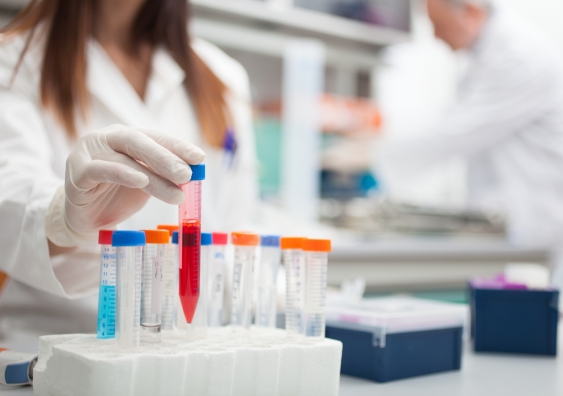Babies and children with chronic rare lung diseases will receive next generation genome testing to improve diagnosis, early detection and treatment as part of a new UNSW medical research study funded by Australian Genomics Health Alliance.
The UNSW research team, led by Professor Adam Jaffe from the School of Women's and Children's Health, received a $485 000 grant from Australian Genomics Health Alliance to assist a network of doctors and researchers collaborate to improve healthcare for children affected by interstitial and diffuse lung disease (chILD).
“Children with rare lung disease struggle to get an accurate diagnosis and often doctors have never heard of the disease,” said Professor Jaffe. “Patients can’t find specialists and even when diagnosis is made, treatment is frequently unknown.”
chILD is a group of about 200 rare chronic lung diseases that affects roughly one in every 100,000 children born in Australia. These diseases cause a thickening of the lung tissue, due to scarring, inflammation or fluid build-up. This thickening affects the oxygen and carbon dioxide exchange by the lungs, causing symptoms including rapid breathing, chronic coughing and weight loss. The diseases have a childhood mortality rate of about 10%.
The Australian Genomics Health Alliance Flagship study, chILDRANZ, will enrol 120 children over two years from all Australian states and territories and will offer the opportunity to participate in the first international clinical trial in chILD now underway in Europe. The study will use whole exome sequencing, a test that will detect rare diseases by analysing thousands of genes simultaneously. Genomic testing will increase the chance of accurate diagnosis, improve standards of care and referral practice, increase the diagnostic awareness of chILD and standardise care management. The Lung Foundation Australia is a key collaborator in project.
“Using whole exome sequencing we hope to discover more genes and be able to store genomic information that we can revisit for undiagnosed illnesses. There is an extraordinary change happening in genomics,” said Professor Jaffe.
Currently, testing looks only for known genes and just 12% of rare lung diseases are identified. Funding will also be used to build a registry of children with the lung disorders and provide a coordinated approach to care and the option to be involved in clinical trials.
There are about 7000 known rare diseases, affecting about 1.2 million people in Australia, roughly equivalent to the number of people with diabetes.
“Australia is one of the only countries without a national plan for rare diseases. The study will create resources for families, peer support and education for health professionals,” said Professor Jaffe.
“Rare diseases are one of the hardest areas to research. It’s a really important area and it’s crucial that countries invest in rare disease with the collective high cost and burden on the economy.”
“I was absolutely delighted to receive the funding that will take us to the next phase and make a difference to patients locally and internationally,” he said.
Formal recruitment for the trial will begin in April 2018.


